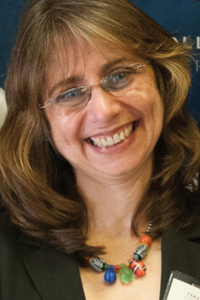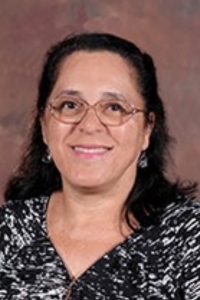2025 Leadership Candidate Bios
In the spirit of providing the best possible leadership toward the continued pursuit of SNEB’s strategic objectives, the Nominating Committee is proud to present the following slate for this year’s. Read about the position descriptions here: https://www.sneb.org/about/leadership-nominations/
Support the future of our community by casting your vote for the proposed slate of candidates. Each nominee brings passion, experience, and a commitment to our shared mission.
- Vice-President: Caree Cotwright, PhD, RDN, LDN and Heewon Gray, PhD, RDN
- Secretary: Stephanie Silvera PhD, MS
- Treasurer: Sarah Francis, PhD, RD, MHS and Cheryl LH Armstrong, PhD, MBA, RDN, LD
- Director-at-Large: Oyinlola (Toyin) Babatunde, PhD, MPH, RDN, FAND and Marci Kelly Scott, PhD, RDN
- Nominating Committee (2 positions): Pamela Koch, EdD, RD and Jeane Silva, PhD, EdS, EdD, MB(ASCP)
- Membership Committee Co-Chair Elect: Tiffany Hylton, PhD, RDN, LD and Humaira Jamshed, BSc, MSc, PhD
- Student Board Representative: Amelia Sullivan, MS, RDN
- ACPP Chair-Elect: Ricardo Kairios, MS

Vice President
Caree Cotwright, PhD, RDN, LDN
SNEB & other relevant professional experience
SNEB Director-at-Large; Former Director of Nutrition Security at United States Department of Agriculture.
What strengths would you bring to the Board of Directors?
Innovation in the field of nutrition education; board experience, leadership, communication and research skills
What is the greatest challenge facing SNEB as an organization in the next decade? What would you do to help SNEB address it?
One of the greatest challenges SNEB will face is remaining relevant and continuing to grow in an ever-changing landscape. I will utilize innovation, technology, and communication savvy to empower the organization to grow and thrive.
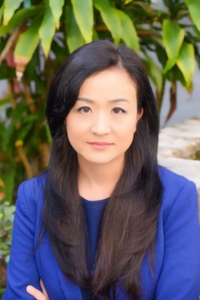
Vice President
Heewon Gray, PhD, RDN
SNEB & other relevant professional experience
08/2022 – present: Secretary/Vice-Chair/Chair, Journal Committee, Society for Nutrition Education and
Behavior
08/2024-present: Member, Nominating Committee, Society for Nutrition Education and Behavior
08/2023 – present: Chair-Elect/Chair, Nutrition Education for Children Division, Society for Nutrition
Education and Behavior
06/2022 – 05/2024: Member/Chair, Nominating Committee, Florida Academy of Nutrition and Dietetics
08/2021 – 07/2023: Chair-Elect/Chair, Research Division, Society for Nutrition Education and Behavior
08/2001-7/2022: Division Rep, Membership Advisory Group, Nutrition Education for Children Division,
Society for Nutrition Education and Behavior
01/2020-present: Member, Editorial Board, Journal of Nutrition Education and Behavior
Abstract reviewer for American Society for Nutrition, Society for Nutrition Education and Behavior, and American Public Health Association conferences
Ad-hoc journal reviewer for Review for Research in Autism Spectrum Disorders; Advances in Autism; American Journal of Clinical Nutrition; Games for Health Journal; Nutrients; Ecology of Food and Nutrition; Childhood Obesity; Journal of Autism and Developmental Disorders; International Journal of Environmental Research and Public Health; Appetite; Public Health Nutrition; American Journal of Public Health; International Journal of Obesity; Journal of Health Education and Behavior; Archives of Public Health; BMJ Open
Ad-hoc member of grant review panels for NIDCR, NIDDK, NICHD, NCCIH, NINMD, USDA, AHA, and Swiss National Science Foundation.
What strengths would you bring to the Board of Directors?
I am an Associate Professor of Nutrition and Dietetics and the Concentration Lead for the Community and Family Health PhD program at the College of Public Health, University of South Florida. As a long-standing member of SNEB since 2004, starting in my master’s program, I would bring a broad perspective as a researcher and leader in the field of nutrition education and behavior. I have been actively involved in several SNEB divisions and have served in leadership roles, which have prepared me to contribute to board-level discussions and decisions. As the current chair of the SNEB Journal Committee, I understand the importance of bridging nutrition education research and best practices in the field, ensuring that evidence-based strategies guide practitioners and that best practices inform research priorities. Having been a student and early-career member, I benefitted from invaluable opportunities to connect with outstanding mentors and colleagues through various SNEB activities and annual meetings. I am committed to supporting SNEB’s vision by supporting student members and early-stage professionals while strengthening professional development opportunities in research and advocacy skills for all members. Lastly, I will leverage my unique connections with nutrition education researchers and practitioners in East Asian countries to enhance global relationships and expand our interests in global food systems and nutrition education practice worldwide.
What is the greatest challenge facing SNEB as an organization in the next decade? What would you do to help SNEB address it?
This may not be the challenge unique to SNEB, but retaining members and actively engaging them in volunteer-based activities is an increasingly common issue faced by many professional organizations. The current uncertainty in research funding and professional support may have long-term consequences and further complicates member engagement. Transparent communication and innovative approaches to member engagement will be essential to address these challenges. In addition, I believe that broadening SNEB’s collaborations with other organizations and building multidisciplinary connections will foster new opportunities to advance nutrition education research and practice. Lastly, in the next decade, the ever-evolving development of AI and other technologies will impact the field of nutrition education. Providing timely guidelines and professional development for our members will be crucial.
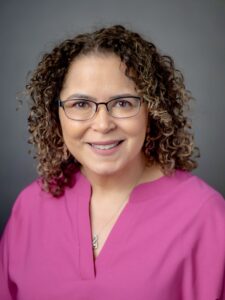
Secretary
Stephanie A. Navarro Silvera, MS, PhD
SNEB & other relevant professional experience
Employment:
- Professor, Department of Public Health, Montclair State University, 9/06 – Present
- Research Director, Food Stamp Nutrition Education Program, Rutgers University, 10/05- 9/06
- Epidemiologist, Albert Einstein College of Medicine, 03/04- 4/06
- Research Assistant, Department of Nutritional Sciences, Rutgers University, 8/98-9/99
- Nutrition Counselor, Federal Supplemental Program for Women Infants Children (WIC), St. Joseph’s Hospital and Medical Center, 8/97-9/98
Professional Organizations
- SNEB Abstract Committee Chair – (current)
- National Academy of Science Engineering and Medicine Roundtable on Obesity Solutions- Co-Vice Chair (2025-2028)
- American Society for Preventive Oncology – Junior Member Organizing Committee member, 2013-2014; Session co-chair 2014-2015 and 2015-2016; Membership Task Force, 2013 – 2019
- American Public Health Association, Cancer Forum Secretary, 2011-2014, Program Committee member, 2011-2014.
What strengths would you bring to the Board of Directors?
With a Master’s in Nutrition Education and a PhD in Public Health, I bring a strong academic foundation and a deep commitment to advancing health through evidence-based education. As a professor of public health, I am well-versed in translating complex research into actionable strategies—an essential skill for accurately recording and maintaining Board meeting minutes and supporting clear organizational communication. In my role as Co-Vice Chair of the National Academies of Sciences, Engineering, and Medicine’s Roundtable on Obesity Solutions, I help guide high-level discussions that bridge research, policy, and practice—experience that directly strengthens my ability to contribute meaningfully to governance, strategic planning, and policy adherence at SNEB. My leadership across multiple national boards has further honed my skills in organizational oversight and collaborative decision-making, making me well-prepared to ensure compliance with SNEB’s bylaws and to serve as an engaged and effective liaison to committees, as well as a reliable presence at the Annual Meeting and executive gatherings.
What is the greatest challenge facing SNEB as an organization in the next decade? What would you do to help SNEB address it?
One of the greatest challenges facing SNEB in the next decade is staying at the forefront of advancing nutrition education while addressing growing disparities in health equity and access to credible, culturally relevant nutrition information, while navigating shifting political realities. As misinformation spreads rapidly and public trust in science becomes increasingly polarized, SNEB must lead efforts to amplify evidence-based practices and support professionals working in diverse communities. To help address this, I would advocate for expanding partnerships that center equity and inclusion, strengthen member engagement through mentorship and cross-sector collaboration, and prioritize initiatives that elevate the visibility and impact of SNEB’s work. As Secretary, I would ensure transparent communication and support strategic planning efforts that align with these goals, reinforcing SNEB’s role as a trusted leader in nutrition education and behavior change.

Treasurer
Sarah Francis
SNEB & other relevant professional experience
As a healthy aging advocate and implementation scientist, I bring over 20 years of experience in community nutrition, health, and aging to the SNEB board. Currently, I am a Professor in Food Science and Human Nutrition at Iowa State University and serve as the research director at the National Resource Center on Nutrition and Aging. My career is dedicated to developing and evaluating theory-based nutrition and health education programs.
An active SNEB member for 13 years, I have served in various roles, including conference abstract reviewer, leadership positions within the Healthy Aging Division (HAD), and participation in the annual conference planning committee. My notable contributions include leading HAD to grow by 50%, creating and leading the HAD newsletter committee, organizing six annual HAD-sponsored SNEB Conference Sessions, and co-authoring a joint position paper guiding national outreach efforts.
What strengths would you bring to the Board of Directors?
As a candidate for the SNEB Treasurer position, I bring a strong set of strengths that align with the role’s demands. My collaborative nature ensures that I work effectively with board members and stakeholders, fostering a team-oriented environment. I am detail-oriented, which is crucial for managing financial records and ensuring accuracy in all transactions.
My dedication to the success of SNEB drives me to get tasks done efficiently and effectively. I am action-oriented, always ready to take initiative and implement solutions that benefit the organization. My approach to decision-making is data-informed, allowing me to analyze financial data and make strategic decisions that support SNEB’s goals.
These strengths, combined with my commitment to the organization’s mission, make me a well-suited candidate for the Treasurer position.
What is the greatest challenge facing SNEB as an organization in the next decade? What would you do to help SNEB address it?
One of the greatest challenges facing SNEB in the next decade is the declining public trust in science-based education, which significantly impacts our members’ work. This issue, combined with reduced funding for our members’ projects and potential membership decline due to financial constraints and competition from other nutrition professional organizations, poses substantial hurdles.
To address these challenges, I believe SNEB should focus on engaging the public to promote awareness of the importance of our members’ work. This could involve public outreach campaigns, partnerships with community organizations, and leveraging social media to highlight the impact of our research and programs. By increasing visibility and demonstrating the tangible benefits of science-based nutrition education, we can rebuild trust and support.
Additionally, it is crucial to convey to new nutrition and health education professionals what SNEB uniquely offers compared to other professional organizations. This could include offering more professional development opportunities and refining our mentorship programs. By providing clear pathways for career advancement and showcasing the unique benefits of SNEB membership, we can maintain and grow our membership base.
These strategies will help SNEB navigate the challenges ahead and continue to thrive as a leading organization in nutrition education and behavior.

Treasurer
Cheryl LH Armstrong, PhD, MBA, RDN, LD
SNEB & other relevant professional experience
I joined SNEB in 2019, and since Fall 2021, I have been part of the Higher Education Division leadership team. I have enjoyed serving on the SNEB Annual Conference Planning Committee as a representative from the Higher Education Division, as an Abstract and Program Proposal Reviewer, and as an attendee at the annual conferences since 2022. Additionally, I have been actively involved in the SNEB Competency Certification Workgroup since 2023. I have experience serving on and chairing budget committees, and as the director of a clinical research center, one of my main responsibilities includes budget oversight to ensure that funds and resources are used effectively, efficiently, and transparently to support government, academic, and industry-sponsored research studies.
What strengths would you bring to the Board of Directors?
I bring a solid foundation in financial management and organizational leadership, developed through my experiences in academia, food systems management roles, and professional service, along with a Master of Business Administration. I have a genuine passion for supporting SNEB’s mission and am committed to contributing meaningfully to SNEB’s success. I am a good listener, welcoming of different perspectives, organized, and I believe in teamwork and the power of collaboration to achieve shared goals. My leadership experience includes roles at both the state and national levels with the Academy of Nutrition and Dietetics and the Commission on Dietetic Registration. I’ve also served my community as a 4-H volunteer for over 15 years, including roles as a club leader and Food Preparation project superintendent. I am excited about the opportunity to bring my energy and experience to the Board of Directors, supporting SNEB’s objectives and ensuring smooth, responsible financial operations.
What is the greatest challenge facing SNEB as an organization in the next decade? What would you do to help SNEB address it?
As an international organization, one of SNEB’s greatest challenges is to remain relevant and responsive to a rapidly changing global climate. Advocating for the integration of technologies into nutrition education, addressing evolving public health priorities, and ensuring that nutrition educators are visible across sectors will be essential. At the same time, SNEB must strengthen member engagement and retention, foster a sense of belonging, and maintain financial stability amidst shifting funding landscapes. Burnout among nutrition professionals also threatens member involvement and innovation. To help tackle these challenges, I would advocate for strategies focused on outreach and member development (both current and new) that encourage engagement, mentorship, and professional growth, particularly for students and early-career professionals. Creating opportunities for connection, collaboration, and well-being is essential for growing and retaining our membership, ensuring that SNEB’s impact on “promoting effective nutrition education and healthy behavior” globally remains strong.

Director-at-Large
Oyinlola (Toyin) Babatunde, PhD, MPH, RDN, FAND
SNEB & other relevant professional experience
I am an Associate Professor in the Department of Nutrition Science at East Carolina University (ECU). Since joining the Society for Nutrition Education and Behavior (SNEB) in 2013, I have actively contributed and remained engaged across multiple facets of the society and served as Healthy Aging Division (HAD), Chair-Elect (2014-2015), Chair (2015-2016), Past chair (2016-2017); HAD Liaison on Advisory Committee on Public Policy (2018-2021); Division of International Nutrition Education (DINE) Webinar committee (2021-2022); and JNEB Manuscript Reviewer (2012 – present). I have also served as an SNEB conference abstract reviewer and a mentor. I am active in the Academy of Nutrition and Dietetics (AND) and served on the Executive Committee of the Healthy Aging DPG as Nominating Committee Chair-Elect (2016-2017) and Chair (2017-2018). I am
currently serving as a program reviewer for the Accreditation Council for Education in Nutrition and Dietetics (2020- present). I became a fellow of the Academy of Nutrition and Dietetics in 2018. At ECU, I very recently served as Co-Director of the Office of Healthy Aging (2021-2024), as Chair of ECU Committee of committees (2020-2024), and currently serving as a member of the Leadership Development Task Force of the University of North Carolina Faculty Assembly (2023- present).
What strengths would you bring to the Board of Directors?
I bring a deep commitment to advancing our professional body and supporting the continued growth of our organization. My vision as Director-at-Large is to work collaboratively with members to develop sustainable strategies for increasing recruitment, enhancing engagement, improving retention, and cultivating a vibrant, inclusive professional community. I believe that by fostering inclusive, innovative, and supportive spaces, we can continue to grow a dynamic and sustainable community that reflects the best of our field as nutrition educators.
What is the greatest challenge facing SNEB as an organization in the next decade? What would you do to help SNEB address it?
I believe one of the greatest challenges facing our field in the next decade is staying responsive to rapidly evolving nutrition and public health needs while ensuring the relevance and visibility of nutrition educators across sectors. I am dedicated to helping our organization meet this challenge through strategic growth member support, and innovation, which will translate to improving our financial base. I am excited about the future of SNEB as an organization. I would be honored to bring my experience and passion and contribute to the ongoing success and evolution of SNEB in service of our members and its mission.

Director-at-Large
Marci Kelly Scott, PhD, RDN
SNEB & other relevant professional experience
SNEB ACPP Chair; Maternal and Child Health Nutritionist in local public health; local school board president and trustee; Association of SNAP-Ed Administrators (ASNNA) Chair; Instructor in Dietetics program at Mich State University; local Farmer’s Market Advisory Committee
What strengths would you bring to the Board of Directors?
I am committed to the field of public health nutrition and its important role in the health of communities and their economies. I have strong experience in efficient administration, effective communications, and innovative programming and would be honored to serve the field in this role with SNEB.
What is the greatest challenge facing SNEB as an organization in the next decade? What would you do to help SNEB address it?
Publicly funded nutrition assistance programs, nutrition education programs, and nutrition research are under threat in these times. Our field must highlight the impacts and return on investment when public health and nutrition programs as well as nutrition research are supported. Amplified, the diverse and accomplished members of SNEB can play a crucial role in this work. Continuing to diversify and increase our membership will build out our voice for nutrition education.
Nominating Committee
Pamela Koch, EdD, RD
Dr. Pamela Koch is the Mary Swartz Rose Associate Professor of Nutrition and Education and the faculty director of the Laurie M. Tisch Center for Food, Education & Policy in the Program in Nutrition at Teachers College, Columbia University. Pam conducts research with schools and communities to give people power to demand healthy, just, sustainable food. She translates her research into curricula for school teachers, recommendations for policy makers, and resources for advocates. She has evaluated many school-based programs that improve school meals, create school gardens, conduct cooking sessions, and promote food justice. She teaches courses on sustainability of the food system, social and psychological determinants of food choice, and the process of food and nutrition education, all done through a sustainability and equity lens. She also teaches an online professional development course for educators, Teaching Food and Nutrition for All. Her work contributes to increased access to nutritious, delicious and sustainable food for all. She completed her BS and MS from Rutgers University and her EdD and RD from Teachers College, Columbia University.
Nominating Committee
Jeane Silva, PhD, EdS, EdD, MB(ASCP)
What strengths would you bring to the Nominating Committee?
I hold a bachelor’s degree in biological sciences, a PhD in pharmacology, and a doctorate in education focusing on educational innovation. Currently, I am an Associate Professor at Augusta University.
I am a board-certified Molecular Technologist through the American Society for Clinical Pathology (ASCP), which supports my research in molecular diagnostic testing. I collaborate closely with ASCP board-certified clinical laboratory scientists and other healthcare professionals to enhance the performance of diagnostic tests, ultimately aiming to improve patient outcomes and provide better decision-making support.
My research interests include nutrigenomics, where I investigate molecular markers and their association with clinical obesity, focusing particularly on the roles of nutrition, education, and behavior.
How would you propose to develop the strongest slate of candidates to lead SNEB?
Based on the candidate’s qualifications and level of experience.
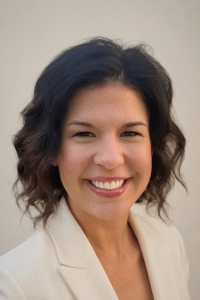
Membership Committee Co-Chair-Elect
Tiffany Hylton, PhD, RDN, LD
What strengths would you bring to this role?
In my role as Human Nutrition master’s program director and Assistant Department Chair at The University of Alabama, I focus on building systems that support recruitment, engagement, and student success. This includes developing outreach strategies for prospective students, managing communication across key points in the admissions process, and creating resources that support onboarding and retention. I also foster partnerships that connect students to high-quality professional training opportunities. These efforts have strengthened recruitment pipelines, improved program visibility, and contributed to a more connected and supported student experience.
These responsibilities have strengthened my skills in program oversight, relationship management, and strategic communication. I take a collaborative and organized approach to leadership and lead with a strategic mindset that balances immediate needs with long-term goals. I would bring this same thoughtful and proactive approach to SNEB’s membership efforts, working with the committee to grow and retain the member base and to implement initiatives that enhance the value and relevance of membership for both current and future members.
What do you see as the most important membership-related activities for SNEB to undertake in the next year?
I believe it is important to continue focusing on how members experience and engage with the value of their membership. Strong member experiences can serve as one of the most effective tools for both retention and recruitment. I am particularly interested in how new members are welcomed and connected, and how we might enhance that initial experience to support long-term engagement. This could include refining how benefits are communicated, expanding outreach across member career stages, and making early involvement in the organization more accessible.
I also see value in gathering feedback from both new and longstanding members to better understand what they find most meaningful and where opportunities for improvement may exist. Building on what is already working well, I would welcome the opportunity to support efforts that ensure SNEB’s member- focused initiatives remain relevant, visible, and aligned with the evolving needs of the field.

Membership Committee Co-Chair-Elect
Humaira Jamshed, BSc, MSc, PhD
What strengths would you bring to this role?
I bring a unique combination of academic leadership, interdisciplinary expertise, and a deep commitment to community-centered public health. My experience in leading undergraduate research, building ethical review systems, and organizing nutrition-focused educational initiatives equips me to foster collaboration and innovation within the Public Health Division. I also have a strong background in engaging students and early-career professionals—an asset for strengthening the pipeline of future public health nutrition leaders.
What do you see as the most important membership-related activities for SNEB to undertake in the next year?
The most important membership-related activities for SNEB in the coming year should center on increasing member engagement and retention through meaningful value-added initiatives. This includes launching targeted networking opportunities (especially for early-career professionals and international members), promoting member-led content such as blogs or webinars, and creating collaborative spaces for project incubation across divisions. Strengthening cross-division interaction and highlighting diverse member contributions can reinforce a sense of community and belonging—critical for growing and sustaining membership.
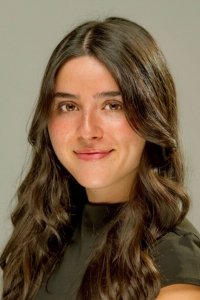
Student Board Representative
Amelia Sullivan, MS, RDN
SNEB & other relevant professional experience
Since joining SNEB in 2022 as a student member, I have contributed to the society’s mission through scholarly engagement and presentation. I’ve presented both oral and poster sessions at the SNEB Annual Conference, sharing original research focused on farm-to-school programming, community-based participatory research, and adolescent diet quality. Outside of SNEB, I have been an Academy of Nutrition and Dietetics member, serving on multiple committees through my state affiliate, notably the Public Policy Committee and the Annual Conference Planning Committee. I have served as the Annual Conference Planning Committee Chair for the last two years. I’ve also represented the University of Maine research team on the Maine Farm and Sea to School Institute Planning Committee since 2021, have served as a Senator for the University of Maine’s Graduate Student Government, and am an active member in two honor societies, Kappa Omicron Nu, and Phi Kappa Phi.
What strengths would you bring to the Board of Directors?
I bring strengths in leadership, event coordination, and effective communication. As a Research Assistant, I have overseen multiple federally and privately funded projects, facilitating collaborations between public health professionals, educators, and agricultural partners. As the Annual Conference Planning Committee Chair for the Maine Academy of Nutrition and Dietetics, I am well-versed in organizing and leading meetings, documenting minutes, managing communications, coordinating speaker outreach, and ensuring timely follow-through on deliverables. These experiences have strengthened my ability to manage largeinitiatives, collaborate across teams, and communicate clearly and professionally, strengths I would bring to the Student Representative role with SNEB.
What is the greatest challenge facing SNEB as an organization in the next decade? What would you do to help SNEB address it?
With current reductions in federal funding, I believe the most significant challenges SNEB will face in the next decade are two-fold. First, limited funding opportunities may make it challenging for researchers, especially students and early-career professionals, to engage in research and disseminate findings. As a Student Representative, I’d advocate for expanding creative approaches for data collection and dissemination that go beyond traditional methods and publishing. Second, burnout is becoming more common across our field. Between packed schedules, limited support, and the ongoing ripple effects of the pandemic, I think it’s more important than ever that SNEB creates space for meaningful connection. If elected, I’d prioritize listening to student voices and help develop student-focused programming that’s engaging and flexible, whether that’s mentorship, virtual meetups, or new ways to recognize and celebrate student contributions.
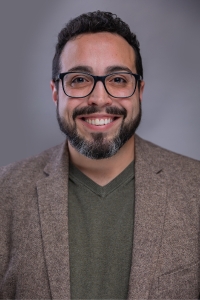
ACPP Chair-Elect
Ricardo Kairios, MS
What strengths would you bring to the Advisory Committee on Public Policy?
As a current member of the Advisory Committee on Public Policy and nominee for the role of chair-elect, I bring a combination of policy experience, leadership in equity-focused initiatives, and a strong background in nutrition education. My work has consistently centered on advancing health equity through education, policy engagement, and research.
I have extensive experience leading educational initiatives that promote equity. One example includes the webinar I co-facilitated on intersectionality theory, which provided nutrition educators with practical tools to advance inclusive practices. Coordinating this session—one of the highest-registered SNEB webinars of the year—demonstrated my ability to translate research into actionable strategies for public policy and professional development.
My commitment to policy engagement extends beyond my role with SNEB. I actively contribute to policy initiatives at both the local and national levels. As a board member of a statewide food policy council and a member of the New Jersey Academy of Nutrition and Dietetics Public Policy Working Group, I collaborate with stakeholders to advance food security, health equity, and nutrition-related policies. These roles allow me to bridge local concerns with broader national policy efforts, strengthening connections between grassroots advocacy and federal initiatives.
In addition to my involvement in policy groups, I currently serve as chair of the Division of Sustainable Food Systems. I have also contributed to several key outcomes that support SNEB’s policy efforts. I co-authored multiple ACPP-focused editorials in the Journal of Nutrition Education and Behavior (JNEB) to elevate policy discussions within the field. I co-authored the leave-behind document for the Washington, D.C., Advocacy Day, which effectively outlined SNEB’s policy priorities for legislators. Furthermore, I organized collaborative conference workshops between the Advisory Committee on Public Policy and the Division of Sustainable Food Systems, fostering cross-disciplinary dialogue on pressing food and nutrition policy issues. In serving on the Advisory Committee on Public Policy as the upcoming chair-elect, I would continue to leverage my experience in community-based research, coalition-building, and inclusive education to support the committee’s efforts in advancing equitable, evidence-based nutrition policies that promote health and well-being for all communities.

